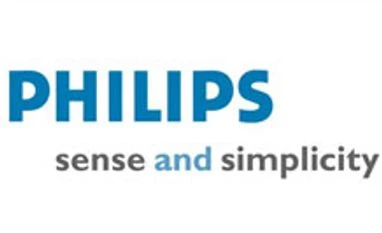Royal Philips, which earlier this month cut its profit guidance on healthcare equipment sales, is budgeting for improved earnings at the body-scanner and medical-gear unit at the end of the year.
Sales at the division declined 4 per cent in the second quarter, with deteriorating profitability, the Amsterdam-based company said in a statement today. Group net income fell 24 per cent to 242 million euros ($328 million), compared with an average analyst prediction of 160 million euros, on lower taxes.
Philips' hopes for a recovery in its biggest unit by sales have been buoyed by demand growth in Europe and emerging markets of almost 10 per cent, helping offset a weakened North American market. The gradual restart of a production facility in Cleveland through the remainder of the year will also add to second-half results.
Taking action
Van Houten is focusing Philips on more profitable businesses such as LED lighting, and selling divisions that need too much investment relative to returns.
"We are taking decisive action to accelerate value creation, improve performance and capitalise on higher growth opportunities in our businesses," Van Houten said on a call with journalists.
Philips, two weeks ago, announced a change in the management structure at the healthcare division after disappointing profit. Managers will now report directly to the CEO after the exit of Deborah DiSanzo, who had overseen the division for two years.
While the decrease in healthcare sales "is a bit disappointing," consumer lifestyle and lighting divisions compensated for that business, said Hans Slob, an analyst at Rabobank.
A consumer switch away from traditional incandescent bulbs is gathering pace, leading the company to accelerate planned cutbacks in capacity, the CEO said today.
The company plans to combine LED-component and automotive-lighting assets, while exploring strategic options including an initial public offering for those operations, echoing a move by German rival Siemens. Earlier in the year Philips sold its DVD and multimedia divisions to guitar-maker Gibson Brands and the television production was sold to TPV Technology.
Sales at the division declined 4 per cent in the second quarter, with deteriorating profitability, the Amsterdam-based company said in a statement today. Group net income fell 24 per cent to 242 million euros ($328 million), compared with an average analyst prediction of 160 million euros, on lower taxes.
Philips' hopes for a recovery in its biggest unit by sales have been buoyed by demand growth in Europe and emerging markets of almost 10 per cent, helping offset a weakened North American market. The gradual restart of a production facility in Cleveland through the remainder of the year will also add to second-half results.
More From This Section
"Late in the second quarter, we saw the order intake pick up again," buoyed by Chinese hospitals, Chief Executive Officer Frans Van Houten said on an analysts' call. Hospitals in China have refrained from placing orders amid worries that the economy will slow down and a crackdown on corruption.
Taking action
Van Houten is focusing Philips on more profitable businesses such as LED lighting, and selling divisions that need too much investment relative to returns.
"We are taking decisive action to accelerate value creation, improve performance and capitalise on higher growth opportunities in our businesses," Van Houten said on a call with journalists.
Philips, two weeks ago, announced a change in the management structure at the healthcare division after disappointing profit. Managers will now report directly to the CEO after the exit of Deborah DiSanzo, who had overseen the division for two years.
While the decrease in healthcare sales "is a bit disappointing," consumer lifestyle and lighting divisions compensated for that business, said Hans Slob, an analyst at Rabobank.
A consumer switch away from traditional incandescent bulbs is gathering pace, leading the company to accelerate planned cutbacks in capacity, the CEO said today.
The company plans to combine LED-component and automotive-lighting assets, while exploring strategic options including an initial public offering for those operations, echoing a move by German rival Siemens. Earlier in the year Philips sold its DVD and multimedia divisions to guitar-maker Gibson Brands and the television production was sold to TPV Technology.
)